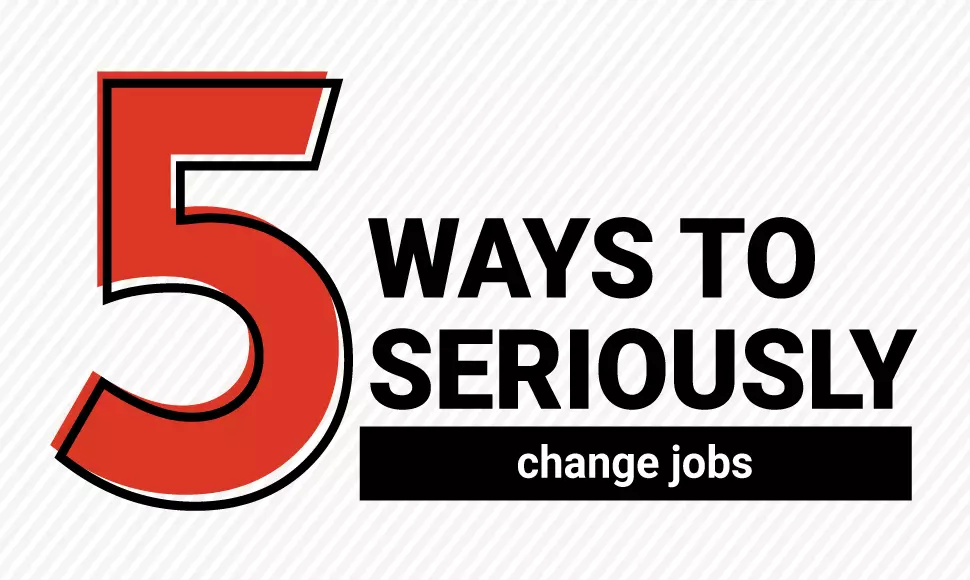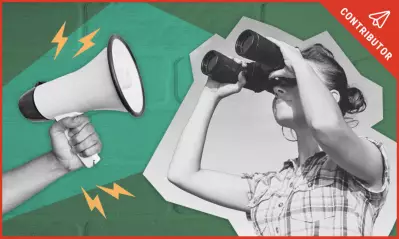How to know it’s time to change jobs
This article was updated on December 1, 2023.

Written by Elizabeth Exline

Reviewed by Jessica Roper, MBA, director of Career Services at University of Phoenix

At a glance
- Being proactive with your career means always having an updated resumé on hand, staying engaged with your network and regularly investing in professional development.
- Knowing when it's time to change jobs hinges on staying apprised of changes in your industry and evolutions within your own department or company.
- Sometimes your career progression must play to a long-term strategy, which can include lateral moves.
Much has been written about the so-called "Great Reshuffle" precipitated by the pandemic. Everyone, it seems, is looking to take advantage of a rebounding economy and pursue the job he or she always wanted but never thought possible.
Millennials are especially tuned in to this shift as more and more of them intentionally step away from the workforce to learn new skills and network before jumping into a different career
.
Yet even with cautious optimism about overall job growth , including awareness about better salaries, work-from-home options and improved work-life balance
, deciding when to change jobs is a process best approached with consideration.
"I’m concerned that job seekers may see this [market] as carte blanche and think, ‘I’ll be able to find something quickly,’" explains University of Phoenix Career Advisor Carol Camerino. "I would say it is a good idea always to leave graciously and only once you have a job lined up."
A proactive approach
Even if you’re happy where you are, the pandemic has taught us that things can change on a dime. That’s why Camerino recommends a proactive career management strategy no matter where you are, what you’re doing or where you’re going.
This means:
- You always have an updated resumé
on hand.
- You keep your network engaged
.
- You regularly invest in professional development
.
"Those things help to make a pivot easier," Camerino explains. "If you wait until you know you’re going to be out of a job, you’re already behind the ball."
5 signs it’s time to change jobs
Whether you’re contemplating a new path or just a new job, the enduring challenge is figuring out when the right time is to move. For Camerino, this means regularly evaluating the following five key metrics. Doing so will help you find ways to advance (or even change) your career.
- Keep an eye on your industry and your market. Also known as reading the writing on the wall, evaluating market changes can give you a pretty good idea of which roles will be in demand and which ones won’t. Camerino recommends checking the U.S. Bureau of Labor Statistics
for reliable industry insights. "When you keep those in mind, you can then stay ahead of the curve and strategize a little bit," she says.
- Watch for changes in your organization. When your company misses its target quarter after quarter or resources get diverted away from your department, it may be time to evaluate your role within the organization. "Employees who don’t assess the changes that are happening can be caught off-guard," Camerino notes.
Other shifts to watch for include leadership changes (different leaders have different priorities) and internal changes. Also, pay attention to external crises that may lead to internal changes. (Hello, pandemic!) Watching for such signs or events "helps a proactive career manager come up with a plan," Camerino says. - Tune in to evolutions within your department. If your industry is standing strong, and your company continues to do well, take a look at your department and your role within it. Has restructuring changed your chances for promotion? Were you passed over for promotion multiple times? Are resources being reallocated in anticipation of a downsizing? Answering yes to any of these questions may signal that it’s time to start looking around.
- Pay attention to innovation and its repercussions. "That’s a fancy way of saying ‘AI,’" Camerino explains, referring to artificial intelligence. Few if any professions remain untouched by technological advances. Instead of viewing them as a threat, however, look at them as an opportunity to find a niche and own it. "Knowing where AI is going to get plugged in and understanding what else needs to be done by a human enables someone to pivot," Camerino says.
- Know yourself. That’s shorthand for having a clearsighted grasp on your personal goals and values and how they align with those of your employer, Camerino says. "I think people have looked at what they want from their employers with a more serious eye," she says. This might mean taking a lower salary but getting more vacation time, or pursuing a flexible schedule that allows you to work from home (or not at all) on certain days.
Just remember that your wish list is something to negotiate, not demand, Camerino adds. "Offers can be rescinded," she says. "So, once you receive an offer, you need to be professional and polished and reasonable. It’s a negotiation, not an order form."
Career resources at University of Phoenix
Don’t embark on your career journey alone! University of Phoenix equips its students and graduates with the following resources to help them on their professional paths.
- Career Services for Life®: Available to UOPX students and graduates, this offering comprises complimentary career coaching, including guidance on how to build a personal brand and write a resumé.
- Free career resources: Browse a range of downloadable guides and templates to help you optimize your LinkedIn® profile, get ready for a job interview and write a resumé and cover letter.
- Career With Confidence® newsletter: Get career insights every week via UOPX’s LinkedIn® newsletter.
Get more information about University of Phoenix and Career Services for Life®.

ABOUT THE AUTHOR
Elizabeth Exline has been telling stories ever since she won a writing contest in third grade. She's covered design and architecture, travel, lifestyle content and a host of other topics for national, regional, local and brand publications. Additionally, she's worked in content development for Marriott International and manuscript development for a variety of authors.

ABOUT THE REVIEWER
Jessica Roper, University of Phoenix director of Career Services, is a seasoned leader with over 15 years of experience in leadership within higher education. She has honed her expertise in student services and career development and is passionate about helping others discover and refine their skills.
want to read more like this?


